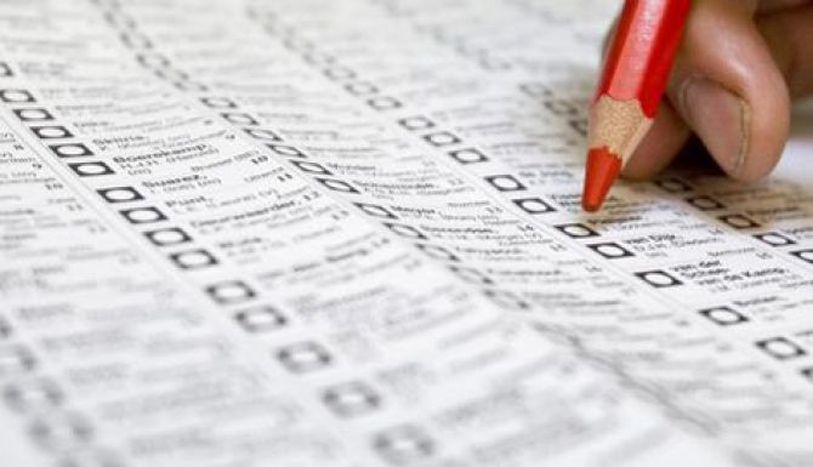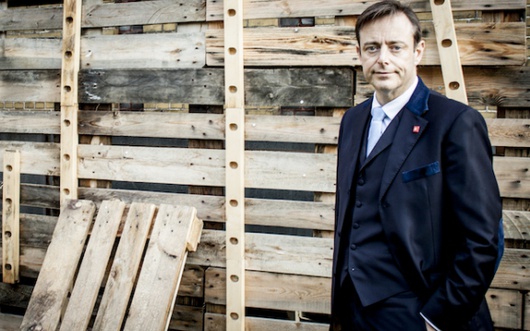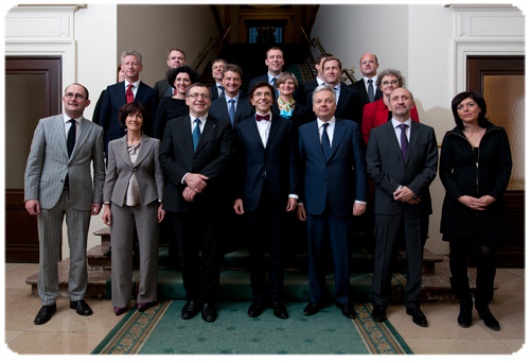
elections in belgium: three birds, one stone
Published on
Translation by:
Abigail WatsonThe Belgians have been to the ballot boxes to elect their representatives at three levels of power. The breakthrough of the N-VA, a Flemish nationalist party, was confirmed. The far right has almost been wiped out and the radical far left party enters into Parliament.
On the 25th May 2014, Belgium experienced a unique electoral moment: Belgians turned out to vote in the European, federal and regional elections. Suffice it to say that these elections will leave their mark on the Belgian political landscape for years to come...
Far-right Vlaams Belang loses out to the N-VA
 Just as the polls predicted, the N-VA, the Flemish separatist party, is the big victor in these elections. In Flanders, Bart De Wever's party has gone beyond the 30% mark. On a national level, it reaped 20.3 % of the votes, with the francophone Socialist Party (PS) and the Dutch-speaking Christian party CD&V trailing far behind with 11.7 and 11.6 % respectively. The N-VA has benefited from the fall of Vlaams Belang, the far-right anti-EU party, which fell from 7.8 to 3.7 % at the federal elections.
Just as the polls predicted, the N-VA, the Flemish separatist party, is the big victor in these elections. In Flanders, Bart De Wever's party has gone beyond the 30% mark. On a national level, it reaped 20.3 % of the votes, with the francophone Socialist Party (PS) and the Dutch-speaking Christian party CD&V trailing far behind with 11.7 and 11.6 % respectively. The N-VA has benefited from the fall of Vlaams Belang, the far-right anti-EU party, which fell from 7.8 to 3.7 % at the federal elections.
Groen, the Flemish green party, has, for its part, taken almost 2% of votes at the Flemish elections. The same cannot be said for its sister party on the francophone side: Ecolo suffered a humilating defeat. The damage is most noticeable on a regional level: at the Walloon parliament, the number of seats belonging to the green party has fallen from 14 to 4. The blame has been placed with the decision to cease reimbursing Green Certificates to promote the production of green energy. It would also seem that the PTB, the radical far left party, has been able to profit from Ecolo votes: two members of the party are entering into the federal Parliament.
THE MAJORITY LIMITS THE DAMAGE
Despite the crisis and the budgetary cuts made by the Di Rupo government (PS), the parties of the former coalition have managed to limit the damage. The Socialist Party came first in Wallonia and Brussels, but lost 2% at the federal elections. The other parties of the former coalition remain stabilised.
 In 2010, federal politics took on a slow pace due to the lengthy negotiations around forming a government. Indeed, it was only after a wait of 541 days that the socialists, liberals and christian democrats finally formed a government, a world record. As a result, they only had two and a half years to implement the Sixth State Reform, with the support of the greens.
In 2010, federal politics took on a slow pace due to the lengthy negotiations around forming a government. Indeed, it was only after a wait of 541 days that the socialists, liberals and christian democrats finally formed a government, a world record. As a result, they only had two and a half years to implement the Sixth State Reform, with the support of the greens.
In short, the government could re-enlist for a second term, but this would mean that the main victor in the elections, the N-VA, would not be part of the federal government. King Philippe has, however, given Bart De Wever the iniatitive to commence negotiations with a view to consequently forming a government.
right to vote: the belgian exception
Belgium is one of the four member States where the right to vote is comulsory. Cyprus, Greece and Luxembourg complete the list. Following the example of its neighbour Luxembourg, Belgium recorded an electoral turnout of about 90%. Residents of the two other countries, on the other hand, did not turn out to the ballot box in such large numbers: 58.2 % of Cypriote voters and 44% of Greeks went to vote.
In the EU as a whole, 43.1 % of voters dropped their ballot paper into the ballot box, remaining stable in relation to the 2009 figure. European leaders are overjoyed that, for the first time since european elections were introduced, there has not been a drop in voter turnout.
belgium for dummies
Don't know how the Belgian political system works? Have a look at this amusing video (in English) which explains why Belgium is one of a kind:
Translated from Élections en Belgique : une pierre, trois coups



